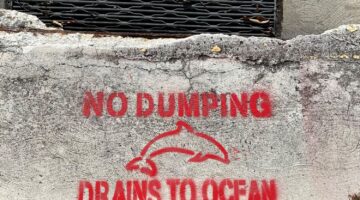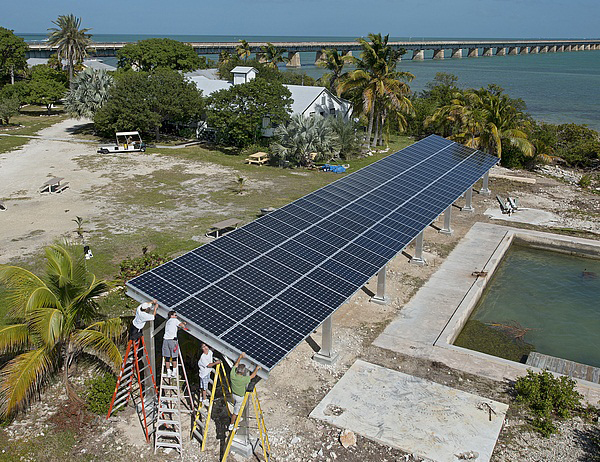Monroe County BOCC Supports Amendment 4 That Provides Tax Breaks for Solar Installation
MONROE COUNTY – On the Aug. 30th primary ballot, Florida voters will decide the fate of the bipartisan Amendment 4, which provides tax breaks for both residential and commercial property owners who install solar energy devices or other renewable energy equipment, beginning in 2018 and lasting for 20 years.
These tax breaks mean the property owners would not have to pay additional property taxes on their residences or businesses when property values increase due to the addition of solar panels or other renewable energy equipment. Florida currently has a property tax abatement for solar and renewable energy devices on residential property.
In June, the Monroe County Board of County Commissioners unanimously approved a resolution to support Amendment 4.
“I’m glad we are supporting it,” Mayor Pro Tem George Neugent said. “The more we reduce demands for fossil fuels, the better we all will be considering the problems like sea level rise that are caused by global warming.”
The Florida Legislature, during its 2016 season, unanimously adopted House Joint Resolution 193, which placed the proposed constitutional Amendment 4 on the primary ballot.
Amendment 4 also has a long list of diverse supporters that include the Southeast Florida Regional Climate Change Compact – which consists of Monroe, Broward, Miami-Dade and Palm Beach counties, The Nature Conservancy, The Florida Chamber of Commerce, the Florida Alliance of Renewable Energy and the Florida Retail Federation.
Passage of Amendment 4, which requires 60 percent of the vote, would help boost the solar industry that provides clean and safe energy, with zero emissions and zero water usage, and creates new local jobs.
The Sunshine State, with its average of 265 sunny days, ranks third in the nation in solar potential. But out of 9 million energy customers, the state has only 8,500 or so rooftop solar systems (and fewer than 100 in the Florida Keys). By comparison, New Jersey has more than 40,000 solar rooftop systems, despite having half the population of Florida and fewer sunny days.
Renewable power accounts for only 2.3 percent of Florida’s energy generation, the fourth lowest in the country. In 2012, HB 7117 established a renewable energy tax credit program in Florida, but that is set to expire in 2017.
“We are hoping passage of Amendment 4 will help bring more solar energy generating systems to the Keys,” said Rhonda Haag, Monroe County Director of Sustainability. “Our residents already are more sustainable oriented than most communities. This financial incentive would relieve some of the financial burden of installing solar panels on their homes and businesses and help those who install them see a quicker payback on their investment.”
Amendment 4 should not be confused with Amendment 1, which is on the November general election ballot.
Amendment 1 is backed by the utility companies and is called “Consumers for Smart Solar.” Under Amendment 1, local and state regulators would maintain control over solar energy.
This amendment was in response to another proposed ballot item that would have made it easier for companies, other than the big utilities, to lease solar panels to homeowners. That potential excess power generated could then be sold to neighbors or back to the utility that services the area. Utilities perceived this as a threat to their monopolies. That proposed ballot item failed to get enough signatures, but backers will try again in 2018.
There appears to be little to no opposition to Amendment 4, which has been called a “win-win” for tax payers and clean energy advocates.
To clear up the confusion about the two solar amendments, Monroe County Legislative Affairs Director Lisa Tennyson said: “The way you remember it: ‘Vote No in November’.”
[livemarket market_name="KONK Life LiveMarket" limit=3 category=“” show_signup=0 show_more=0]






No Comment